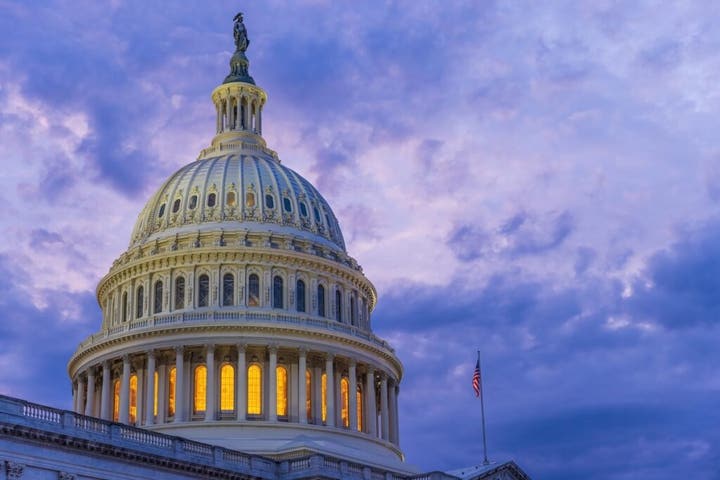In a dramatic turn of events, Senate Republicans successfully passed President Donald Trump’s extensive tax-and-spending bill, a legislative package poised to add $3.3 trillion to the national debt. The bill, which narrowly passed on Tuesday, is now set to move to the House of Representatives for potential final approval. This development marks a significant milestone in Trump’s legislative agenda, as he aims to sign the bill into law by the July 4 holiday.
The legislation, which passed by a 51-50 vote with Vice President JD Vance casting the tie-breaking vote, includes sweeping tax cuts, reductions in social safety net programs, and increased spending on the armed forces and immigration enforcement. Notably, it extends Trump’s 2017 tax cuts and introduces new tax breaks for income from tips and overtime pay while proposing to cut approximately $930 billion from Medicaid and food aid programs.
Contentious Provisions and Political Divide
The bill’s passage has underscored divisions within the Republican Party, particularly concerning the federal government’s self-imposed debt ceiling, which the bill seeks to raise by $5 trillion. During an all-night debate, Republicans deliberated over the bill’s substantial price tag and its potential impact on the healthcare system. The upcoming vote in the House, where Republicans hold a slim 220-212 majority, is expected to be closely contested.
President Trump has expressed confidence in the bill’s prospects, stating it is a “great bill” and predicting that “it’s going to go very nicely in the House.” However, opposition remains robust, with figures like Rep. Thomas Massie (R-Ky.) warning that the bill’s passage could lead to a downgrade of the U.S. credit rating to BBB status, indicating financial distress.
Reactions and Criticisms
The bill has sparked significant controversy, drawing criticism from both political opponents and influential figures in the business world. Sen. Bernie Sanders (I-VT) lambasted the legislation as a “gift to the billionaire class,” arguing that it would harm millions of working-class American families. Meanwhile, Tesla Inc. CEO Elon Musk voiced his displeasure, threatening to launch an “America Party” if Congress approves the spending package.
“This bill is a gift to the billionaire class and a disaster for working families,” said Sen. Bernie Sanders.
Elon Musk’s reaction highlights the broader discontent among some business leaders, who view the bill as a departure from fiscal responsibility. His threat to establish a new political party underscores the potential for significant political realignment should the bill become law.
Historical Context and Future Implications
This legislative effort echoes previous contentious battles over fiscal policy, reminiscent of the tax cuts enacted during the Reagan administration in the 1980s. Those measures, like the current bill, were characterized by significant tax reductions coupled with increased defense spending, leading to debates over their long-term economic impact.
Looking forward, the bill’s passage could have far-reaching implications for the U.S. economy and political landscape. If approved by the House, it would represent a major victory for President Trump and his allies, potentially solidifying their influence within the Republican Party. Conversely, failure to pass the bill could embolden opposition voices and reshape the party’s policy priorities.
The next steps involve intense lobbying efforts in the House, where both supporters and opponents will seek to sway undecided lawmakers. As the debate continues, the bill’s fate remains uncertain, with potential consequences for the nation’s fiscal health and political dynamics.
As the situation develops, all eyes will be on the House of Representatives, where the outcome of this legislative battle will be determined. The stakes are high, and the implications of the decision will reverberate across the political spectrum and the broader American public.
